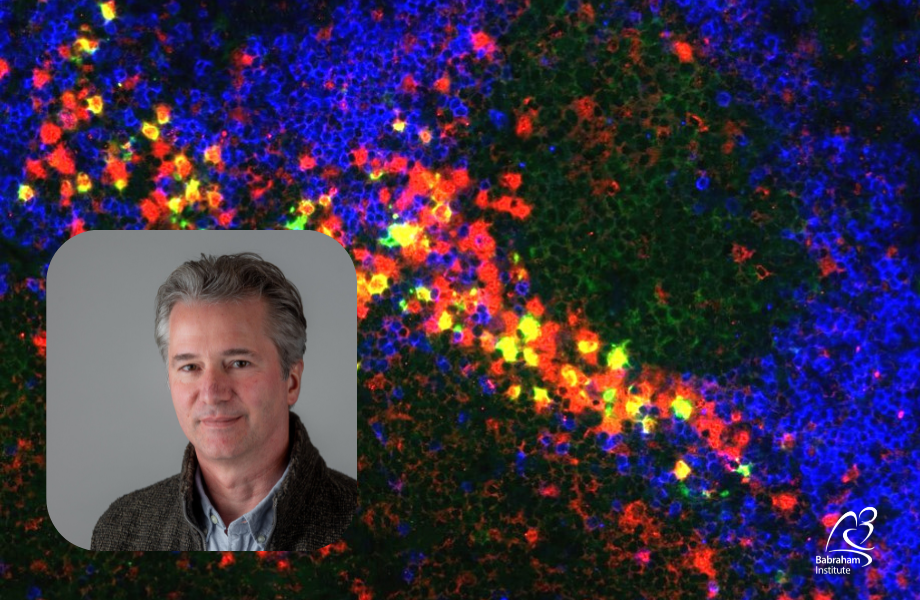The Institute is delighted to welcome Professor Kai-Michael Toellner to the Institute’s Immunology programme as a senior group leader. Kai’s main research interests are cellular interactions and differentiation processes that happen in lymphoid tissues during cellular responses to vaccines or pathogens. During these processes lymphocytes differentiate to become high affinity effector cells that will produce pathogen-specific neutralising antibody and create immunological memory that protects us against reinfection. Age decreases the robustness of the immune response to infection and vaccination so knowing more about these processes is central to developing interventions to maintain a strong immune system in later life.
Dr Martin Turner, Head of the Immunology research programme, welcomed Kai, saying: “I’m immensely excited to welcome Kai to the Institute and our research programme. Kai’s research connects across several areas of our existing work and we look forward to levering this synergy to advance our research into the mechanisms of immunity and how this is affected by age.”
Speaking about joining the Institute, Kai said: “I am very excited to join the research environment of the Babraham Institute. The unique combination of world class teams studying themes complementary to our own work, covering in vivo work and cellular immunology to molecular biology and signalling, and the first class supportive infrastructure and facilities should advance and accelerate our own research enormously over the coming years.”
Kai is joined by a senior staff scientist and two PhD students as he establishes his lab at the Institute. Supported by the Institute’s cutting-edge facilities, his group will continue their work on studying the experiences that shape immune cell identity, function and behaviour. This includes understanding the role of cytokines (cell signalling molecules) produced by T lymphocytes and stroma on the selection and differentiation of B lymphocytes, how cellular interactions influence the selection of B cells in germinal centres, and which signals regulate the release of effector B cells – B cells that produce antibodies and also cell-signalling cytokines – from the germinal centre.
The group uses in vitro methods to study B cell biology and explore the mechanisms of B cell activation and differentiation. Mice models are used to understand the integrated aspects of the immune system and physiology, and this work is supported by the use of computer modelling methods to analyse immune responses.
Kai studied biology at the University of Hohenheim, Germany, where he had his first contact with immunology in the laboratory of Clinical Chemistry and Laboratory Medicine, Katharinenhospital Stuttgart, working on new flow cytometry techniques to measure lymphocytes in cerebrospinal fluid. From there he moved to the Forschungszentrum Borstel, Germany, for a PhD project on the regulation of germinal centre reactions by T lymphocytes and cytokines under the mentorship of Professor Johannes Gerdes.
In 1994, Kai Toellner started as a postdoctoral research fellow at the Department of Immunology, University of Birmingham, initially under the mentorship of Professor Ian MacLennan and later with his own research team. Kai maintains active collaborations with several academic labs in the UK, Germany, Italy, and Australia, and has also collaborated with industry for many years, receiving research funding from Pfizer and MedImmune/Astra Zeneca. He is a member of the scientific advisory board of Alloy Therapeutics.



